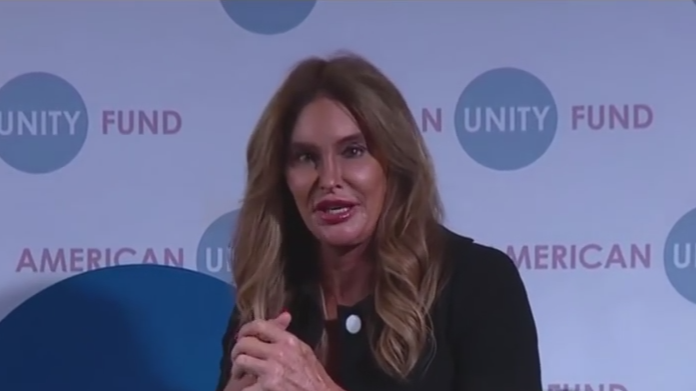What do singer Jackie Evancho, tech executive Peter Thiel and former Olympian Bruce “Caitlyn” Jenner have in common? All are under fire from critics, who say that those connected with the LGBT community cannot associate with President-elect Donald Trump.
 As the only solo artist who has agreed to perform at Trump’s inauguration, 16-year-old Jackie Evancho of America’s Got Talent has already received pushback on social media. That’s mainly because, critics complained, Evancho’s sibling is transgender and their parents are currently suing Pittsburgh’s Pine-Richland School District over female bathroom access.
As the only solo artist who has agreed to perform at Trump’s inauguration, 16-year-old Jackie Evancho of America’s Got Talent has already received pushback on social media. That’s mainly because, critics complained, Evancho’s sibling is transgender and their parents are currently suing Pittsburgh’s Pine-Richland School District over female bathroom access.
Should Evancho’s family situation prohibit her from participation on January 20? She could have chosen, as so many artists did, to curtly decline the offer. Evancho instead pointed out that her acceptance was not “political.”
Responding to critics, the teen advocated patriotism while demonstrating a wisdom beyond her years. "I just kind of thought that this is for my country,” she told The New York Times of her upcoming performance, “so if people are going to hate on me it's for the wrong reason."
But the “hate” isn’t just directed at her. Members of the LGBT community have been deemed virtual pariahs for supporting Trump.
 One of them is PayPal co-founder Peter Thiel – a gay billionaire who immigrated to the United States from Germany as a child. To many in the media and even more in the LGBT community, he’s incomprehensible. As New York Times columnist Maureen Dowd put it, Thiel is comfortable being a “walking oxymoron.” Asked about his concern on LGBT issues, the entrepreneur opined that Trump is “very good on gay rights.”
One of them is PayPal co-founder Peter Thiel – a gay billionaire who immigrated to the United States from Germany as a child. To many in the media and even more in the LGBT community, he’s incomprehensible. As New York Times columnist Maureen Dowd put it, Thiel is comfortable being a “walking oxymoron.” Asked about his concern on LGBT issues, the entrepreneur opined that Trump is “very good on gay rights.”
But Thiel’s usually “politically bland” Silicon Valley peers alienated him for his ideological and financial support of the president-elect, Thiel explained, as they competed to see who “could be more anti-Trump.”
Thiel’s allegiance cost him in other ways too. “There was a push to remove me from the board of Facebook, which is kind of crazy, since I’m the longest-serving director there after Zuckerberg,” he told Dowd.
As Dowd also noted in her article, an Advocate writer refused to acknowledge Thiel as legitimately gay because he did not “embrace the struggle.” This community which has historically prided itself on tolerance showed little grace to a member that ideologically disagreed.
Then, when the news broke Bruce “Caitlyn” Jenner accepted an invitation to the inauguration ceremony, Cosmo called the “unconscionable” step “unforgiveable.”
Jenner, editor Eliza Thompson ranted, could not “simultaneously advocate for transgender rights and support Trump.” Already chastised by the liberal media for not seeing the struggles of less “privileged” transgender folks, the former Olympian has fallen from progressive good graces.
 “Caitlyn claims she wants to use her platform as a means for change,” Thompson argued, “but attending Trump’s inauguration would be the biggest signal yet that she has no plans to look out for anyone but herself.”
“Caitlyn claims she wants to use her platform as a means for change,” Thompson argued, “but attending Trump’s inauguration would be the biggest signal yet that she has no plans to look out for anyone but herself.”
How exactly would Jenner spark change by refusing to attend the ceremony? By accepting the invitation, the transgender icon took a counter-cultural stance by Hollywood standards, displayed ideological tolerance and promoted American unity. That’s change.
As a public figure, it’s easy to ridicule Trump with barbed tweets. That is the path of least resistance in Hollywood and the liberal media. But surely celebrities can use their “platforms” in a more constructive way, as actress Nicole Kidman did in a January 10 BBC interview.
Usually “reticent” on political matters, Kidman weighed in on the 2016 election: “I just say, [Trump’s] now elected, and we as a country need to support whoever’s the president because that’s what the country’s based on.”





